PHOTOS: New Rijeka Urban Parks Just One Lasting Legacy of ECoC 2020
January 27, 2021 – Rising sharply up into the foothills, little space in the expansion of Rijeka was left for green and community recreation areas. New Rijeka urban parks address the issue and are just one lasting legacy of ECoC 2020
The preparations for Rijeka European Capital of Culture 2020 were years in the making. Community consultations and contributions for every aspect of the arts, each venue and city institution put their enthusiasm behind the project. And that's without even mentioning all the international contributors whose work was commissioned. It really did feel like the whole city had come together to show the best of themselves in Rijeka's special year. Except, 2020 turned out to be special for all the wrong reasons.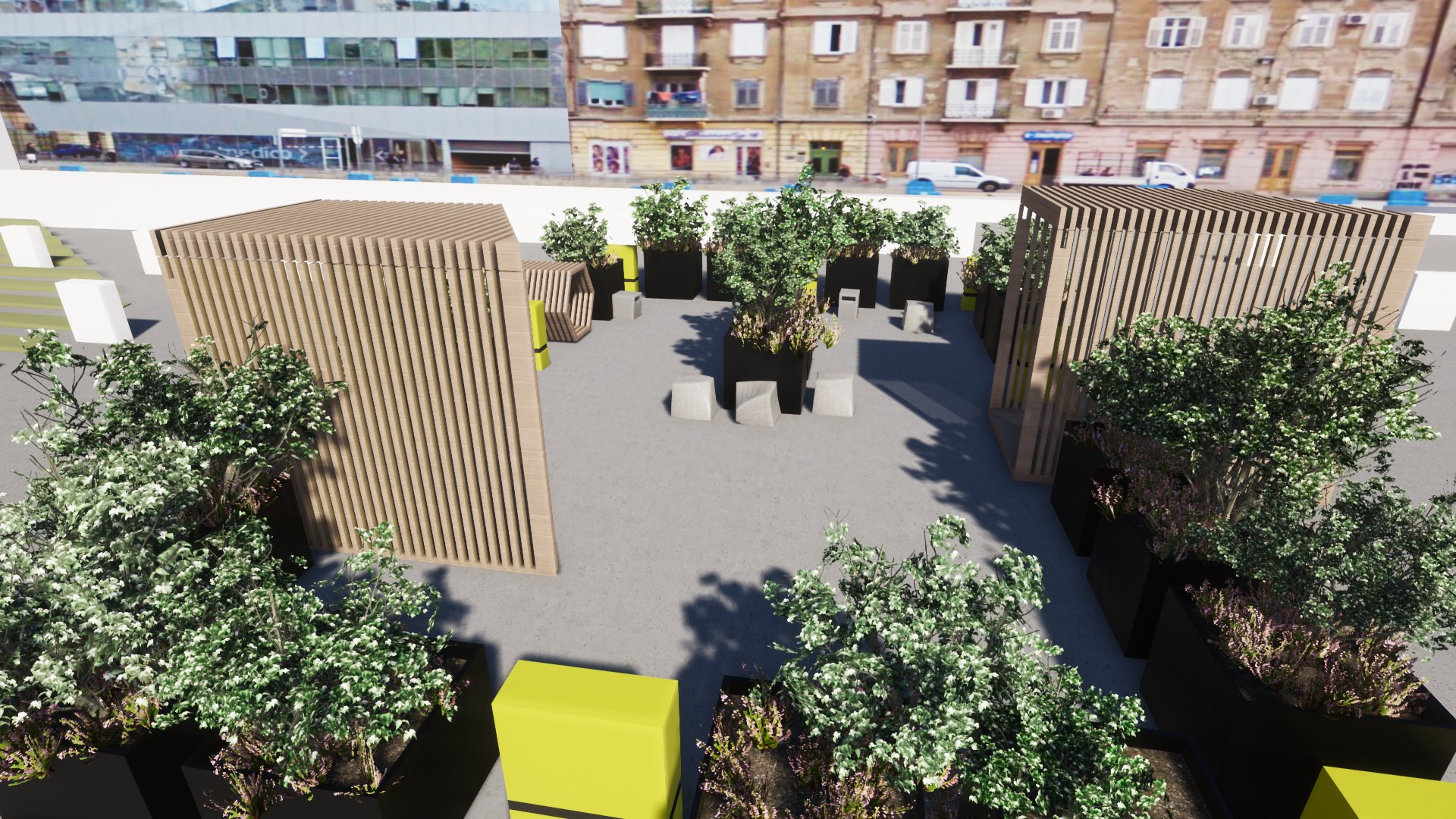
European authorities granted the European Capital of Culture status to Rijeka for extra months in order to allow them to complete some programs halted by the pandemic. Not that it much helped increase the footfall the vast project was meant to attract to the Kvarner capital's streets. Instead, the streets lay bereft of guests, visited only by Rijeka residents. But, that's not such a bad thing.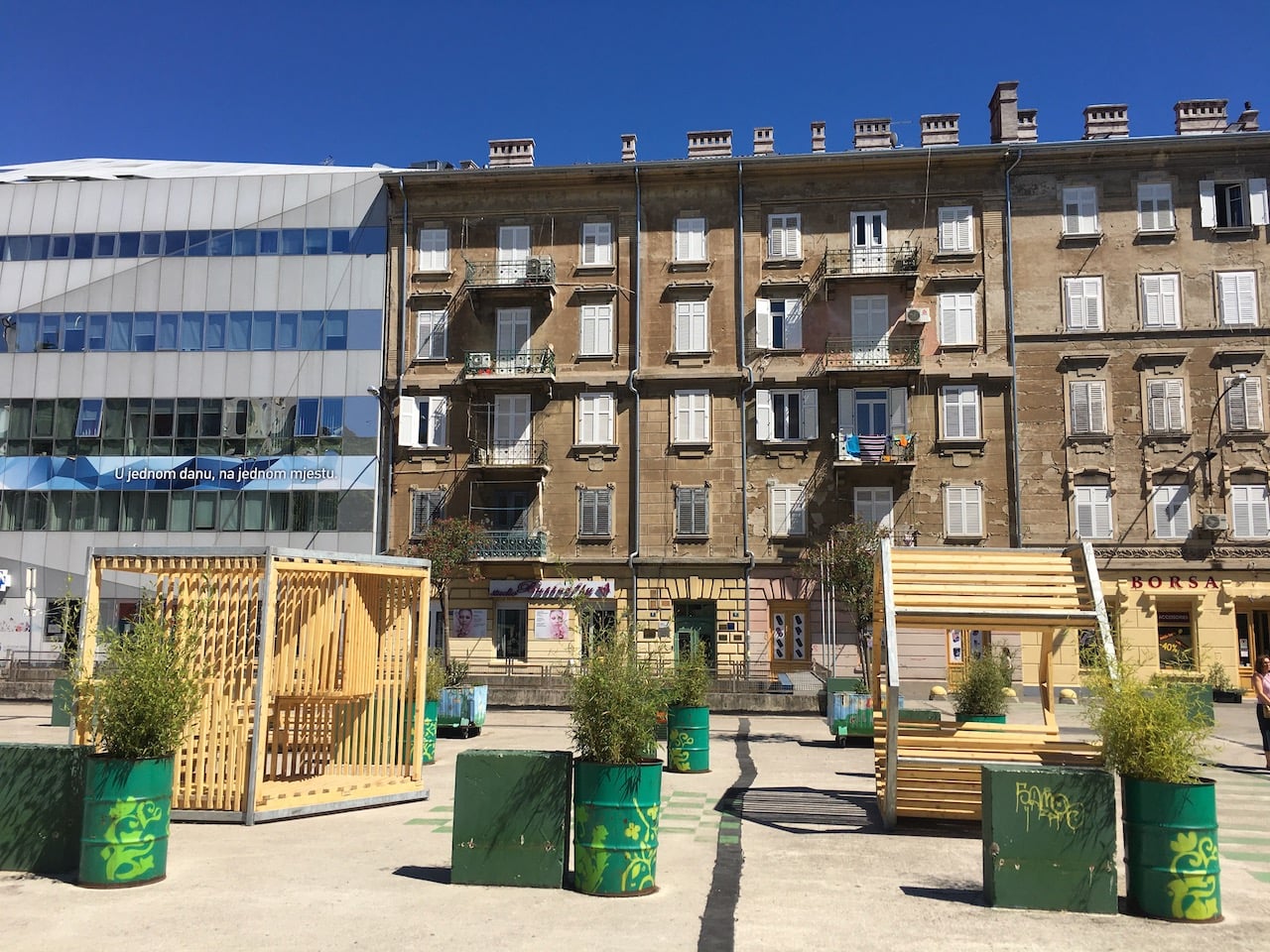
The Capital of Culture has never been awarded solely to help a city attract visitors. Nor is it ever intended to make its mark over just one year. A lasting legacy for the city's current and future residents is perhaps the most essential element of the event. And, though crippled by Corona, Rijeka European Capital of Culture 2020 is staying true to its promise to do so. New Rijeka urban parks and public recreation areas are just some of the benefits ECoC 2020 will leave behind.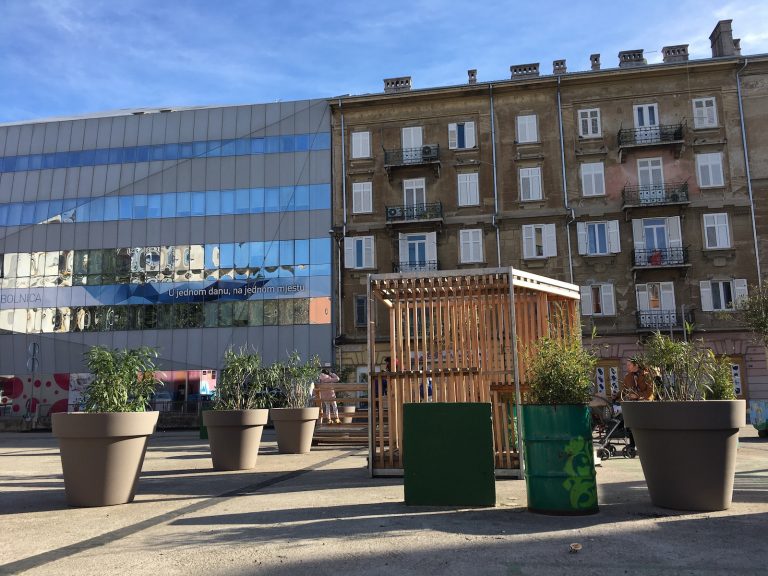
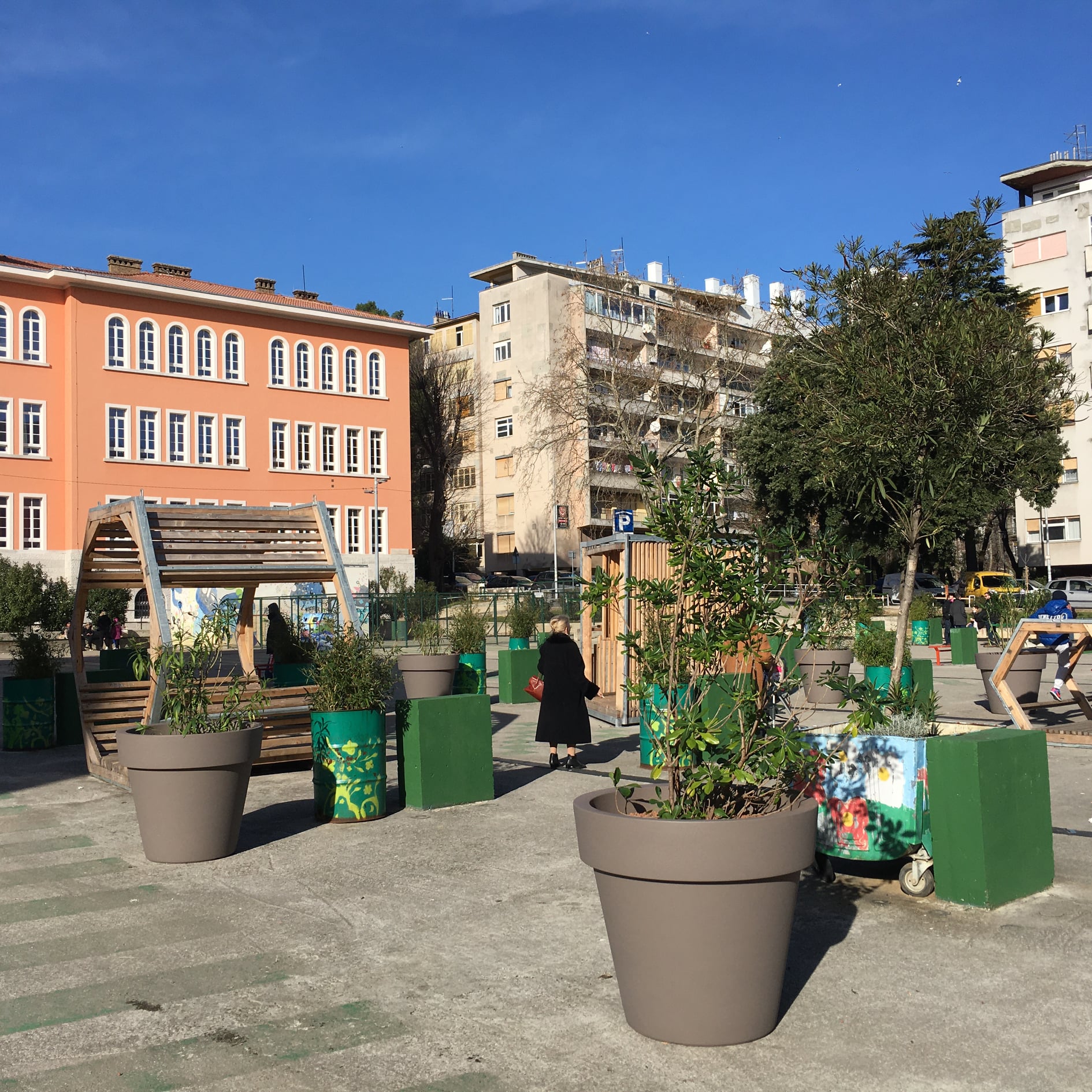
Rijeka is a great city. But, it's a weird place. An anomaly on the Croatian coast, it boasts none of the quaint olde worlde architecture you usually find around the Mediterranean, Croatia included. It's grand Austro-Hungarian facades and palaces are much more like the Croatian capital. Behind them the city rises sharply up into the foothills, modern residential blocks shooting skywards and peering over the centre below. As Rijeka has grown like moss up this hillside, little room has been left for greenery and areas of recreation. Goodness knows, the best spot you might find for a picnic in Rijeka is the cemetery! (Kozala – actually, as far as places full of dead people go, it's actually very nice)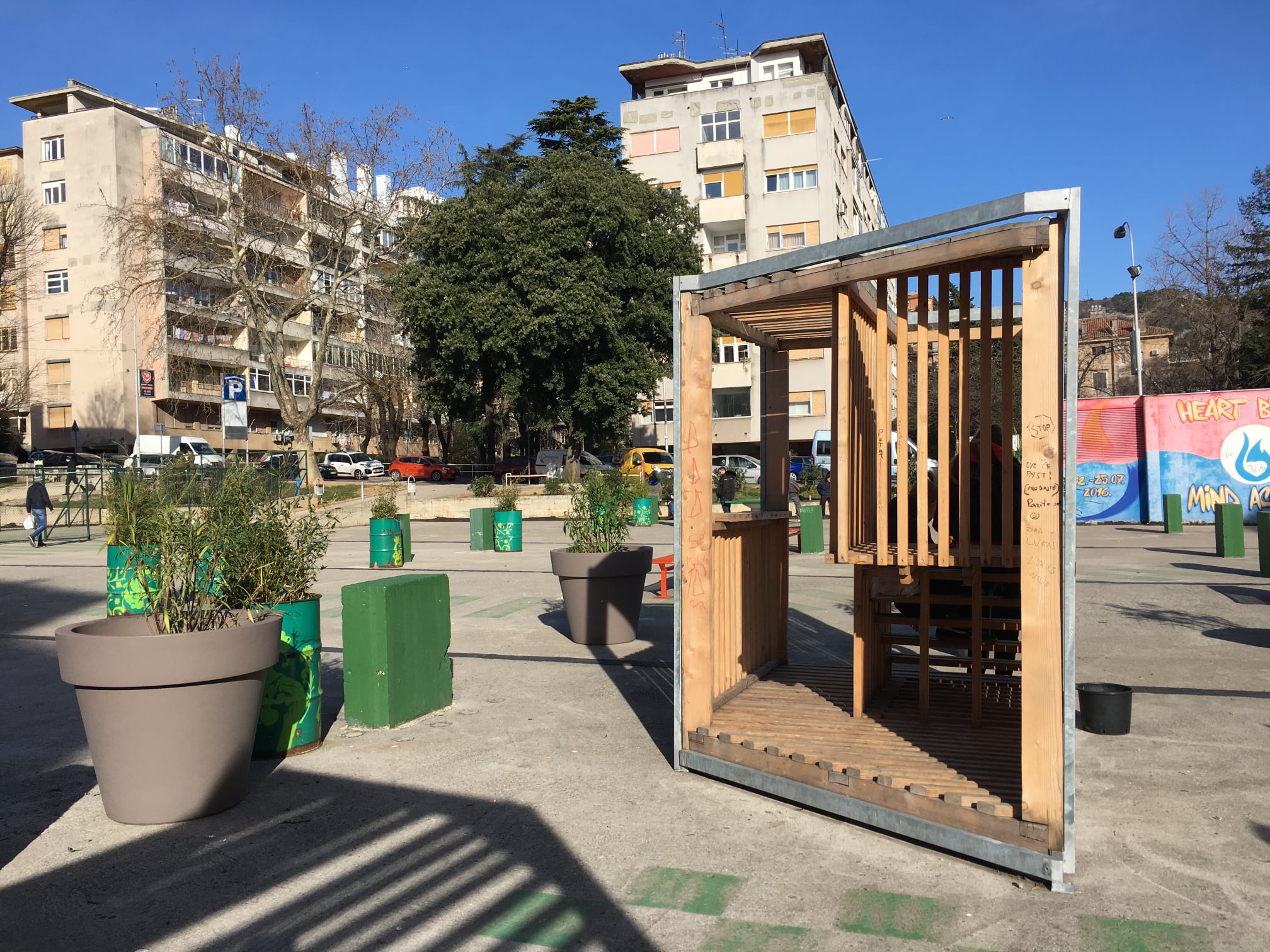
The new Rijeka urban parks try to address the imbalance of work to recreation space city residents have. While it may not be possible to create a vast landscape of lawns and a forest of trees in the city centre, the new Rijeka urban parks and public areas look to use modern solutions and the places they have, to create spaces where everyone can socialise, play, relax or meet up.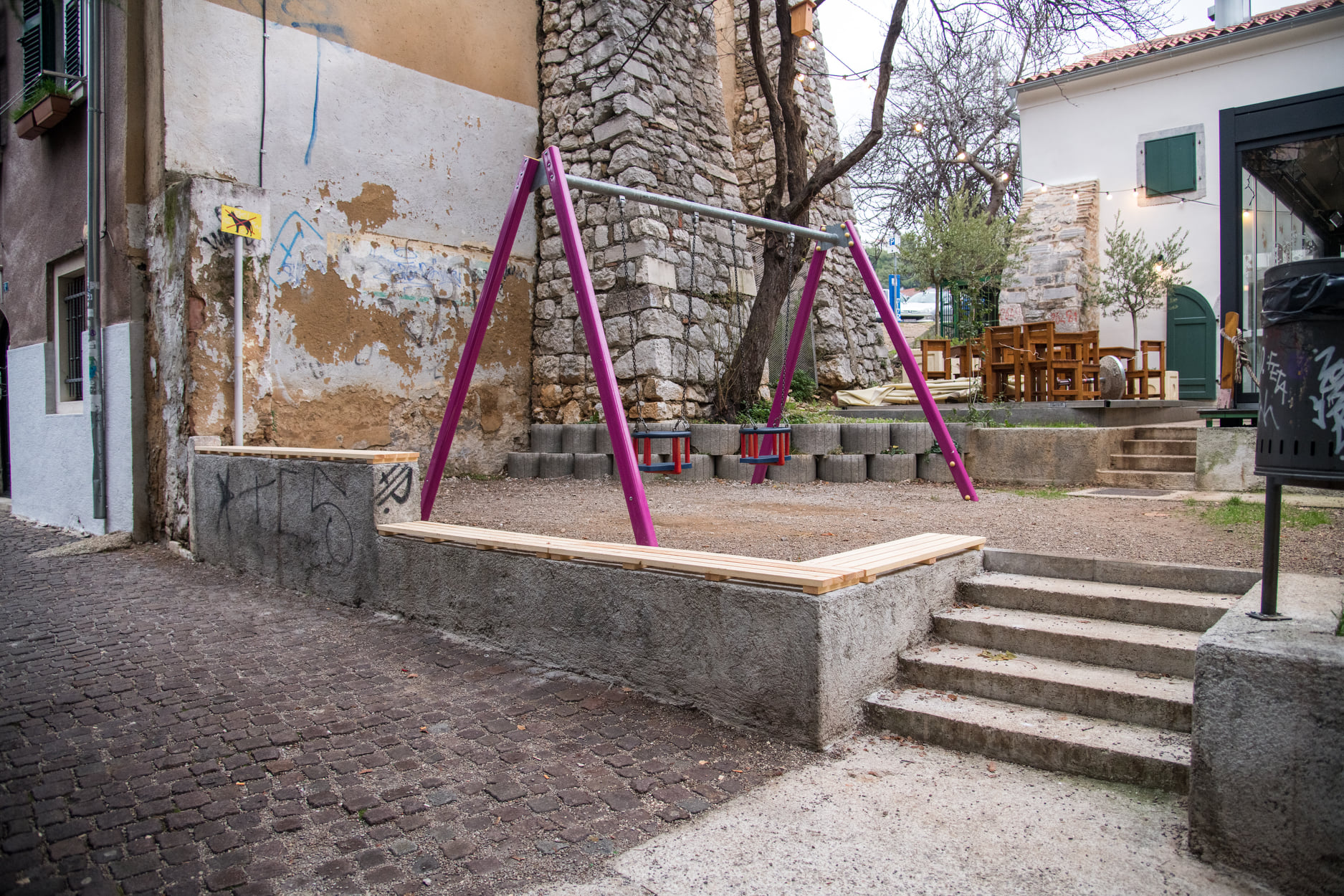
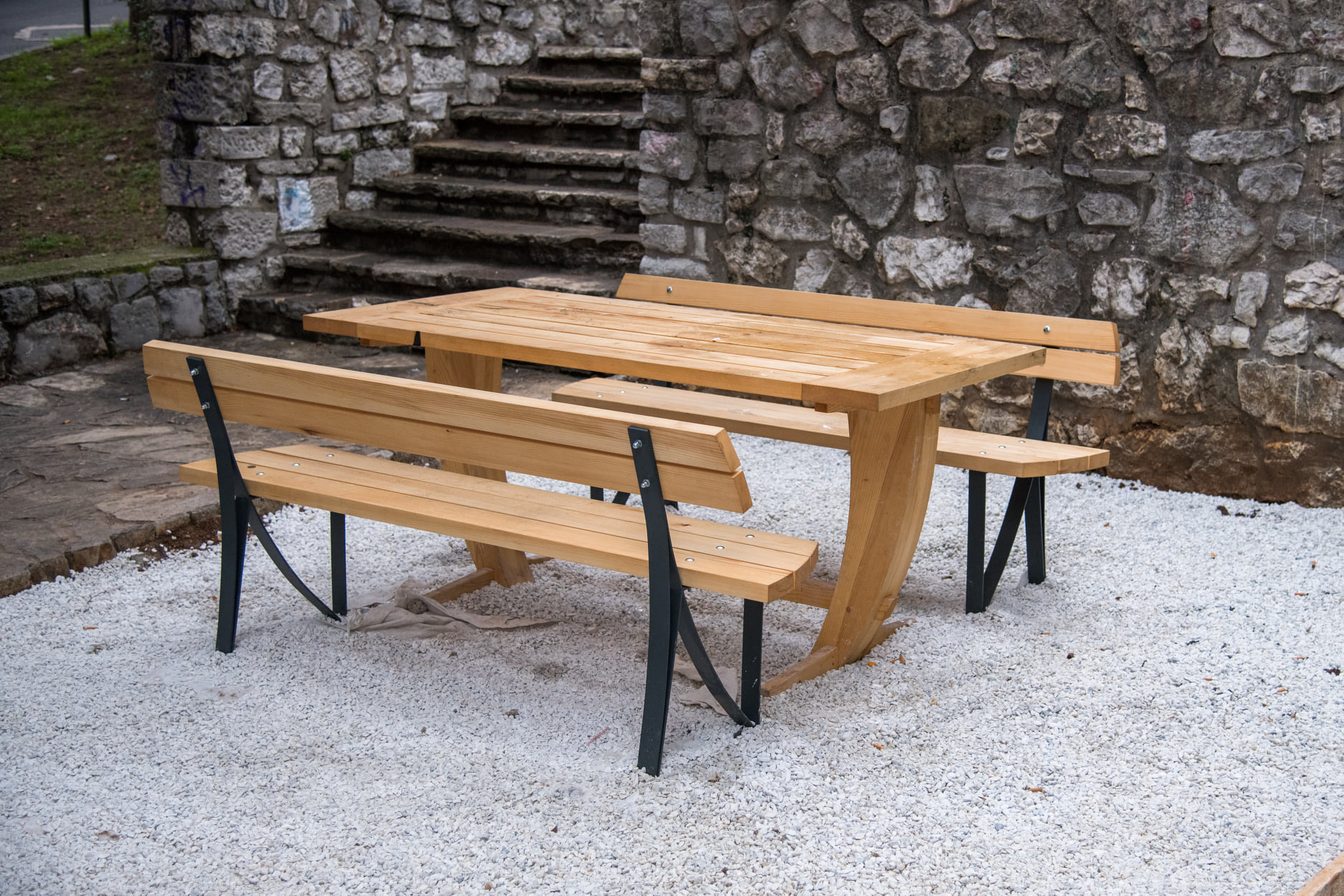
Under several different programs within European Capital of Culture 2020, members of the Association for the Promotion of the Quality of Urban Life 'Urbani separe' worked on the new Rijeka urban parks in July 2020 and again between December 2020 and January 2021. In a relatively short space of time, we think they've done a great job.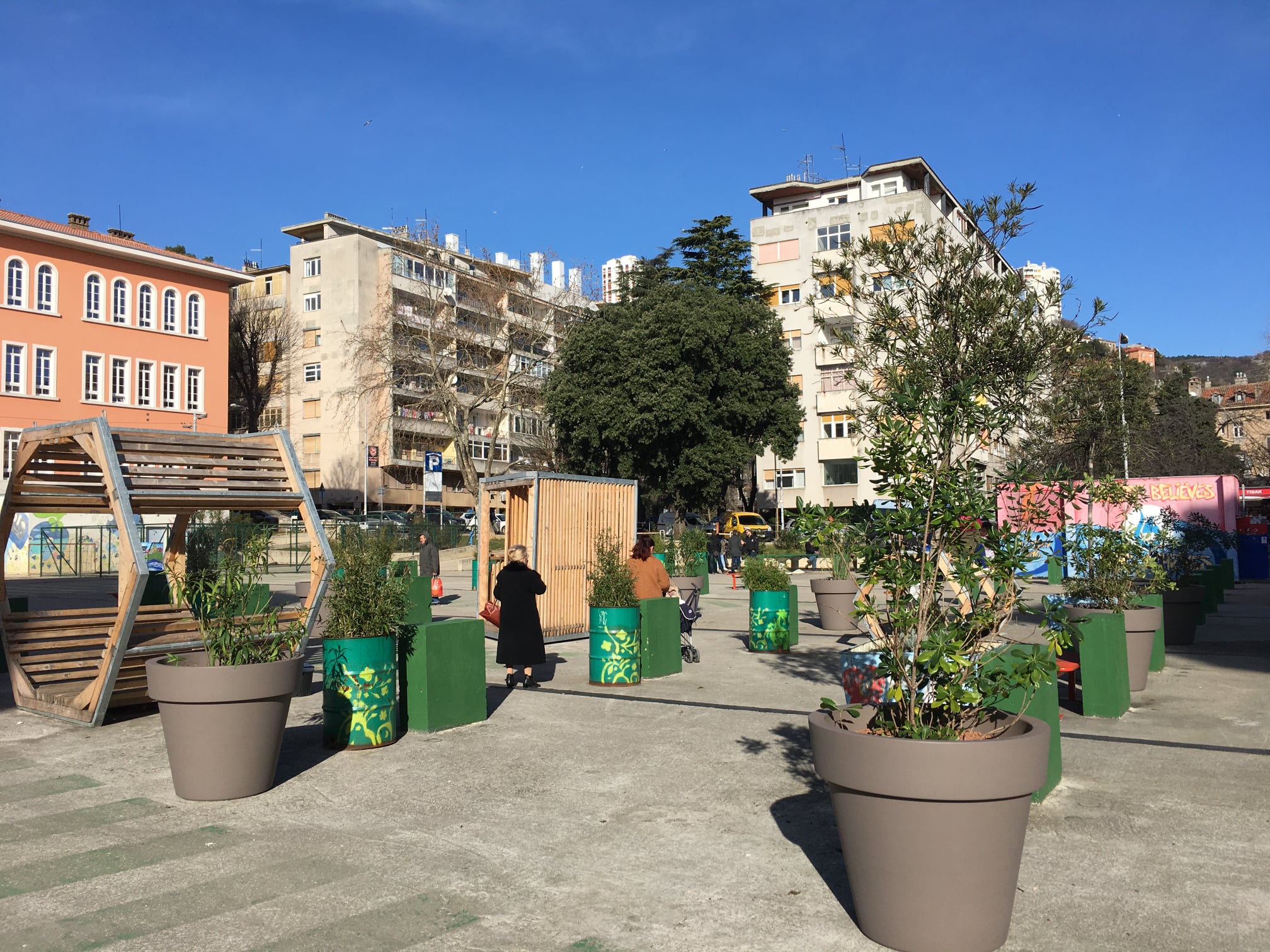
All images © Urbani separe / Rijeka 2020
European Parliament Endorses Extending European Culture Capital Status
ZAGREB, Dec 18, 2020 - The European Parliament on Thursday endorsed a motion to extend the status of European Capital status for the period 2020-2023 which enables Rijeka to present all the programmes it had planned but was thwarted by the COVID-19 pandemic.
With 689 votes in favour MEPs adopted a report by Croatian MEP Zeljana Zovko (HDZ/EPP) to extend the status of European Capitals of Culture in the 2020-2023 period, which gives Rijeka and the Irish city of Galway the "green light" until April 2021 to present their programmes while the next capitals will be deferred from 2021 to 2022 and from 2022 to 2023.
Rijeka and Galway were the European Capitals of Culture for 2020 however the COVID-19 pandemic thwarted them from presenting their planned projects.
After the motion was upheld at a plenary of the parliament in Brussels the Council is expected to confirm the decision next week so that it can take effect before the end of the year.
Ahead of the plenary meeting, Zovko underlined that extending Rijeka's status "in this turbulent time of the pandemic, Rijeka will have another significant opportunity to show that the culture sector has adapted to new circumstances and that creative power during the corona crisis can show what is most important in the creative industry and cultural heritage in promoting European values."
Traditional Bell Ringers in Matulji Part of European Capital of Culture Programme
ZAGREB, February 23, 2020 - A festival dedicated to the tradition of bell-ringing in the area of Rijeka is taking place in the municipality of Matulji on 21-25 February within the "Bells and Nothing Else!" programme, which is part of events celebrating Rijeka as the European Capital of Culture 2020.
"Bells and Nothing Else!" is a programme which brings together 22 local council committees of Matulji, a community northwest of Rijeka.
The traditional carnival processions in Matulji, as the local annual carnival bell ringers' pageant from the Kastav area, are part of UNESCO's list of intangible heritage.
During the January carnival period, bell ringers march through the villages that dot the Kastav region. Clothed in sheepskin throws with bells around their waists and sporting distinctive hats embellished with sprigs of evergreen, two to more than thirty ringers swagger in groups behind a guide carrying a small evergreen tree.
Groups may also include theatrical characters such as a prankster ‘bear’ who regularly escapes the control of his two 'guards', according to the description on UNESCO's website.
"With variations distinctive to each village, the annual carnival bell ringers’ pageant is a way to strengthen bonds within the community and a valuable means of renewing friendships among the towns in the region while integrating newcomers into its traditional culture."
During this year's marches, cooperation has been developed with the Academy of Performing Arts and the Department of Alternative and Puppet Theatre in Prague, the organisers of the "Bells and Nothing Else!" festival say.
More news about the European Capital of Culture can be found in the Lifestyle section.
Project of European Capital of Culture to Raise Rijeka's Visibility
ZAGREB, February 1, 2020 - Rijeka Mayor Vojko Obersnel said on Saturday, when the Rijeka was given the title of the European Capital of Culture in 2020, that this project would heighten the visibility of this Croatian seaport in every sense and leave rich heritage, including the developed infrastructure for cultural events.
On 1 February, Rijeka and the Irish coastal city of Galway take the title of European Capitals of Culture in 2020.
In Rijeka, the year-long events are to be held under the slogan "The Port of Diversity".
"The shared experience of the two capitals of culture, in terms of cultural vibrancy and historical connections, makes 2020 an exciting time to strengthen ties, create cultural opportunities and develop long-lasting relationships," reads the information published on the official website of project for Galway.
On Saturday, before the official ceremony for the inauguration of Rijeka as the European Capital of Culture this year, Mayor Obersnel held a news conference at which he expressed satisfaction with the first events within opening programmes.
Some 220 organisations and societies from 40 countries have participated in the preparations of the programmes for the project.
Commenting on the condemnation on the part of the Croatian Disabled Homeland War Veterans' Association (HVIDRA) of the display of the flag of the former Yugoslavia on posters in Rijeka ahead of the formal inauguration of this northern Adriatic city as European Capital of Culture, the mayor said that the history could not be changed.
In this context the mayor said that in Rijeka's main street Korzo there were temporarily the flags of states in which Rijeka used to be in the last 100 years. One of those state unions was also Yugoslavia, and the flags of the Kingdom of Italy and of the German Third Reich are also put on display in accordance with the timeline of how those states succeeded one another in this region, according to the mayor's explanation.
Also the perpetrator who painted in red a poster illustrating the flag of the Socialist Federal Republic of Yugoslavia (SFRY) in Korzo was arrested by the police. The poster was replaced by a new one in the meantime.
More Rijeka news can be found in the Lifestyle section.
Rijeka 2020: Neglected Green Spaces to Become Mediterranean Gardens
We're now well and truly into 2020's maiden month and that means that Rijeka is now officially the European Capital of Culture. Having been a translator on the Rijeka 2020 project, I can safely say that the city that flows in the Northern Adriatic (Kvarner) part of Croatia certainly has a lot of interesting ideas, events and performances up its sleeve to mark the year, and the programme is varied indeed.
As Morski writes on the 11th of January, 2020, one of the projects that will mark Rijeka 2020 is the jestivi grad (edible city) project, which will work to clear up and breathe some new life into many of Rijeka's abandoned and/or neglected green areas.
Today, beginning at 09:00 and continuing on until 14:00, the activities of the Rijeka edible city project have continued within the scope of the Rijeka 2020 programme, just north of the Giuseppe Duell 2 skyscraper in Mlaka.
After several small clean-up and planting actions that took place in preparation during 2019, in this action, the Citizens Initiative Transition Initiative Rijeka is installing a gazebo on a neglected green space that will be jointly cleaned up by members of the initiative alongside other residents of Rijeka.
The residents will plant several varieties of Mediterranean fruit trees on the landscaped area, including carob trees, old pomegranate varieties, two types of fig trees and more. The activities of the edible city project are being implemented with the support of the Green Wave participant programme as part of the Rijeka 2020 - European Capital of Culture project.
The edible city movement has been expanding around the world over recent years, turning public, often neglected green spaces into gardens full of edible plants that are accessible to all. Edible cities are created by the residents of the settlements in which the programme sets up, and are special in that they give residents a sense of food security, a connection with nature and further enhancement of the sense of community and cooperation among local people.
Make sure to follow our dedicated lifestyle page for more on Rijeka 2020.


